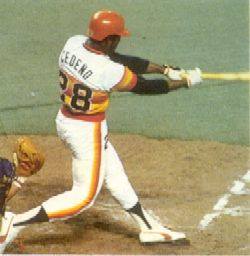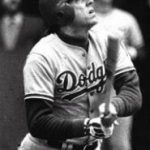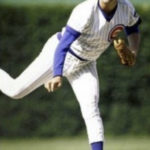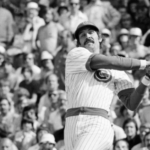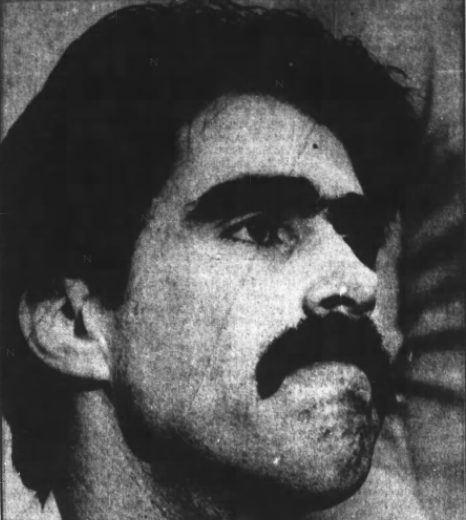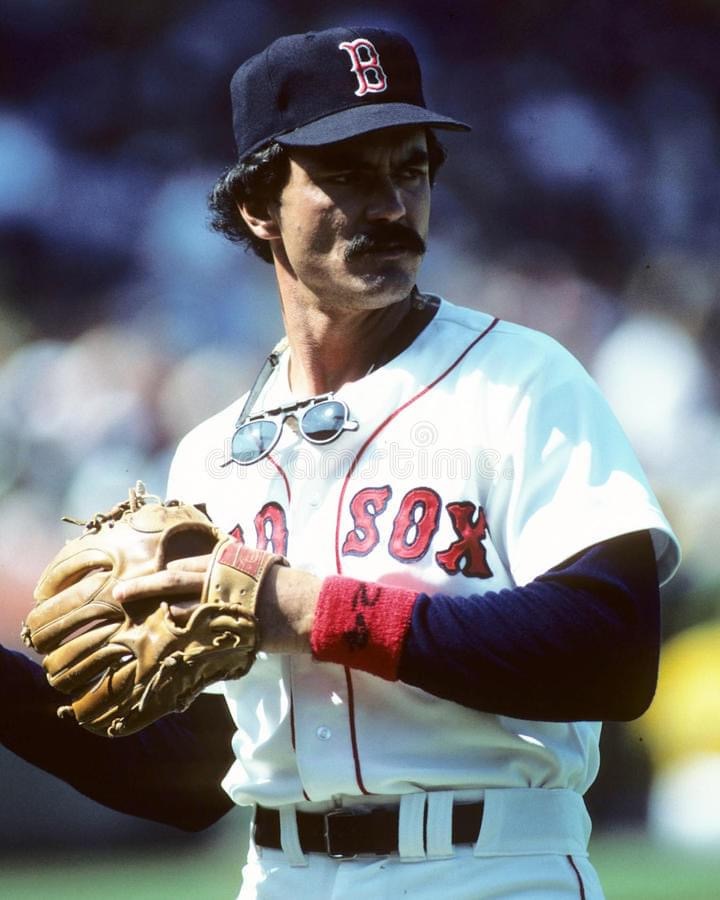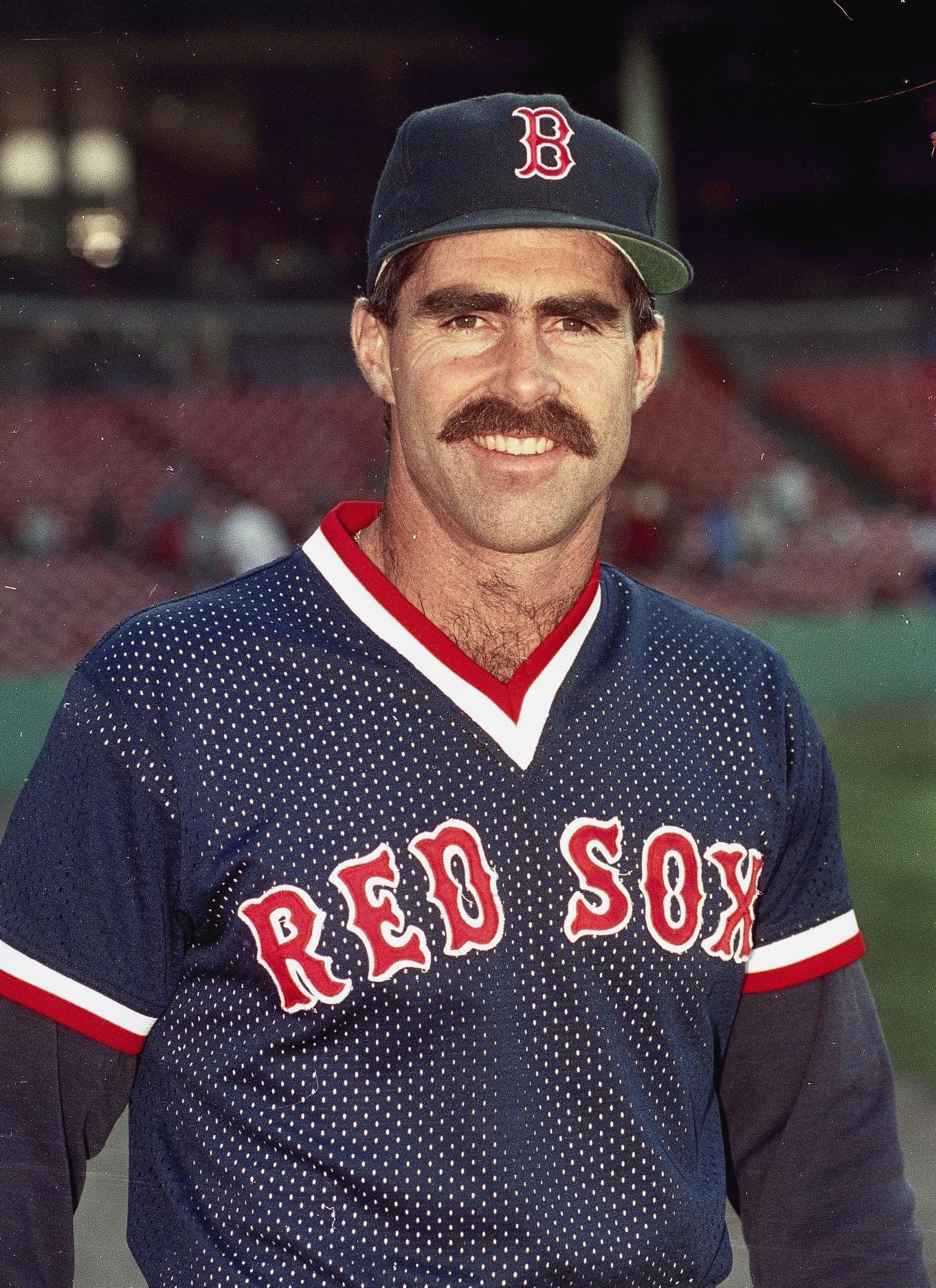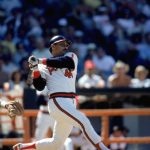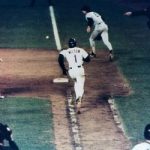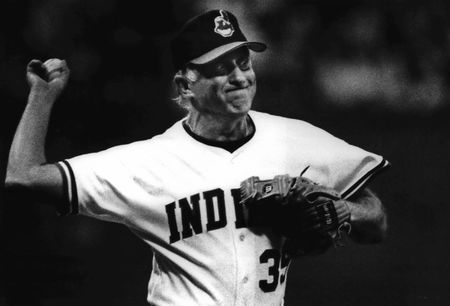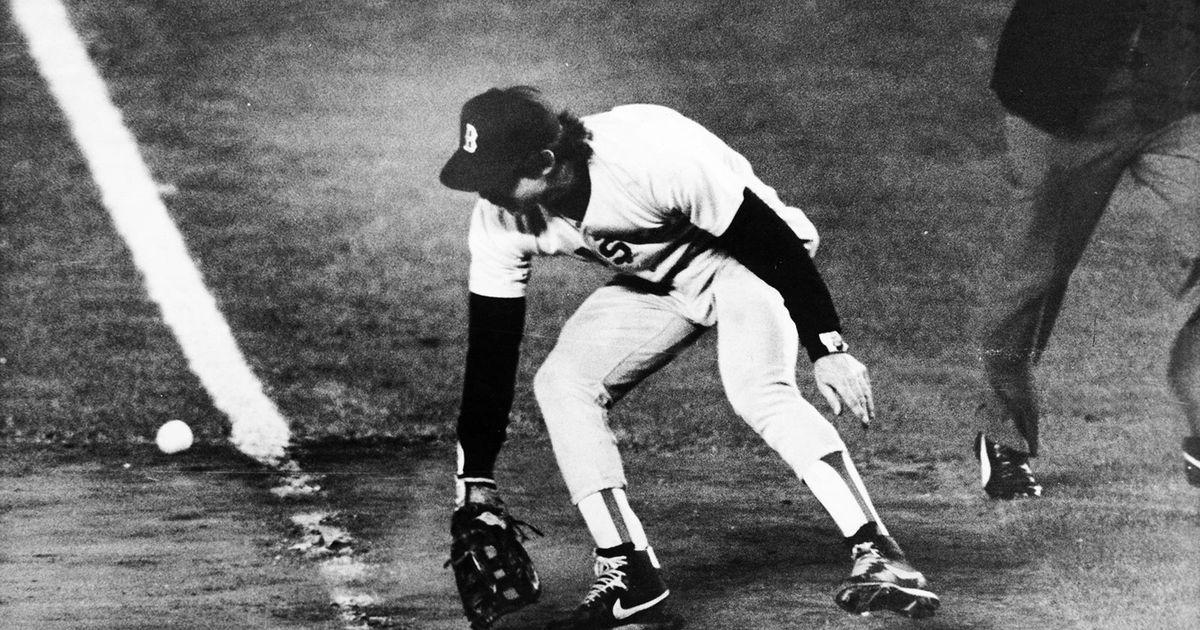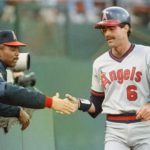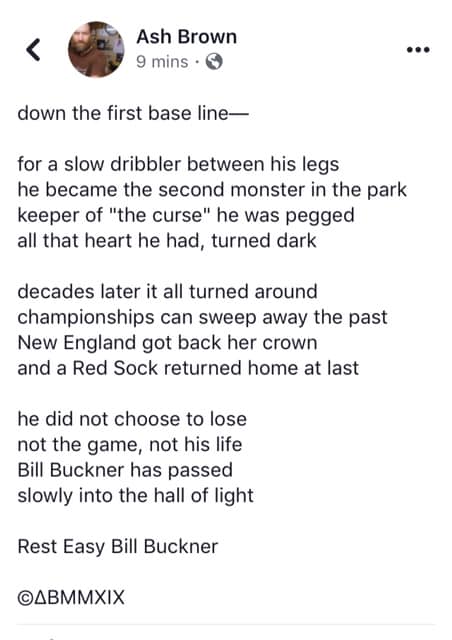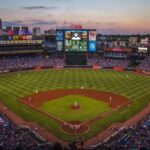Bill Buckner Stats & Facts
VINTAGE BASEBALL MEMORABILIA
Bill Buckner
Positions: First Baseman and Leftfielder
Bats: Left • Throws: Left
6-0, 185lb (183cm, 83kg)
Born: December 14, 1949 in Vallejo, CA
Died: May 27, 2019 in Boise, ID
High School: Napa HS (Napa, CA)
Schools: Arizona State University (Tempe, AZ), University of Southern California (Los Angeles, CA)
Debut: September 21, 1969 (12,954th in major league history)
vs. SFG 1 AB, 0 H, 0 HR, 0 RBI, 0 SB
Last Game: May 30, 1990
vs. TEX 4 AB, 1 H, 0 HR, 0 RBI, 0 SB
Full Name: William Joseph Buckner
Nicknames: Billy Buck
View Player Info from the B-R Bullpen
View Player Bio from the SABR BioProject
Notable Events and Chronology for Bill Buckner Career
Biography Bill Buckner
In a 22-year major league career that spanned parts of four decades, Bill Buckner accumulated more than 2,700 hits, batted over .300 seven times, won a batting title, and led his league in doubles twice. He also played for two pennant-winning teams and spent his last few seasons courageously playing on severely injured ankles. Yet, when Buckner’s name is mentioned, the image that invariably pops up in the minds of most people is one of the gimpy first baseman futilely allowing Mookie Wilson’s slow ground ball to pass between his legs, thereby enabling the New York Mets to complete their miraculous comeback against his Boston Red Sox in Game Six of the 1986 World Series. Buckner’s linkage to this unfortunate event is truly an injustice, since his biggest mistake was actually being in the wrong place at the wrong time.
Born in Vallejo, California on December 14, 1949, William Joseph Buckner attended Napa High School before being selected by the Los Angeles Dodgers in the second round of the 1968 Major League Baseball Draft. Upon signing with Los Angeles, Buckner was assigned to the Ogden Dodgers of the Pioneer League, where he played for manager Tommy Lasorda while also briefly attending the University of Southern California and Arizona State University. Two extremely successful minor league seasons earned the 19-year-old outfielder a late-season call-up to a young and talented Dodgers team in 1969 that also included neophytes Steve Garvey, Bill Russell, Don Sutton, Bobby Valentine, and Willie Crawford. Buckner appeared in just one game, failing to get a hit in his lone at-bat.
Buckner began 1970 in Los Angeles, but his early struggles at the plate prompted the Dodgers to return him to the minors. He returned to the Dodgers later in the season, though, after compiling a .335 batting average at Triple-A Spokane. He batted .257 over the season’s final month, with four RBIs and five runs scored.
The left-handed hitting Buckner spent most of the 1971 campaign platooning in right field for the Dodgers, although he also saw a limited amount of action at first base. Appearing in just over 100 games, he batted .277, knocked in 41 runs, and hit his first five home runs as a major leaguer. Buckner assumed a similar role for the team the following year, batting .319 in just over 400 total plate appearances. Splitting his time between first base and the outfield, Buckner became a regular member of the Dodgers starting lineup in 1973, batting .275 and hitting eight homers as the team’s primary second-place hitter.
With the emergence of Steve Garvey as an All-Star first baseman, Buckner moved to left-field full time in 1974. Serving as an offensive catalyst in the number two spot for the pennant-winning Dodgers, Buckner batted .314, scored 83 runs, and stole 31 bases. Buckner spent two more years in Los Angeles, suffering through an injury-marred 1975 campaign, before batting .301 and stealing 28 bases the following year.
The Dodgers traded Buckner and shortstop Ivan De Jesus to the Chicago Cubs for centerfielder Rick Monday and another player prior to the start of the 1977 season. Still recovering from a staph infection he suffered in his ankle the previous year, Buckner became primarily a first baseman in Chicago. He also developed into one of the National League’s most consistent hitters. Despite being limited by ankle woes to fewer than 500 total plate appearances in each of his first two seasons with the Cubs, Buckner posted batting averages of .284 and .323, respectively. Striking out a total of only 40 times in more than 900 total plate appearances over the course of those two seasons, Buckner was among the most difficult players in the game to fan. He never struck out more than 39 times in any single season, with his career total of only 453 whiffs in more than 10,000 total plate appearances serving as a testament to his ability to make contact with the opposing pitcher’s offering. On the flip side, Buckner rarely walked, drawing a total of only 450 bases on balls during his career. Primarily a line-drive hitter whose power generally manifested itself in doubles hit to the outfield gaps, Buckner never hit more than 18 home runs in a season. However, he compiled more than 30 doubles eight times, hitting as many as 46 two-baggers once, and leading the National League in that particularly category on two separate occasions.
After another solid season in 1979, Buckner won the National League batting title the following year with a mark of .324. He continued to perform at an extremely high level for the Cubs in each of the next three seasons, batting over .300 and leading the league in doubles two times each, while driving in 105 runs and establishing career highs with 93 runs scored and 201 hits in 1982.
Traded from Chicago to Boston early in 1984 for Dennis Eckersley, Buckner was not around to help the Cubs celebrate their clinching of the N.L. East title. However, he had two of his most productive years for the Red Sox, driving in a career-best 110 runs in 1985, while batting .299, hitting 16 homers, amassing 201 hits, and stealing 18 bases, despite playing on a pair of ailing ankles that often caused him to be replaced in the latter stages of games for defensive reasons. Buckner then helped lead Boston to the American League pennant in 1986 by driving in 102 runs and hitting a career-high 18 homers, batting out of the number two spot in the batting order.
More than just an outstanding hitter, Buckner contributed to the Red Sox in many other ways. His grittiness and determination enabled him to start 153 games for Boston, 138 of those at first base, despite playing on ravaged ankles. His aggressive and hard-nosed style of play rubbed off on his teammates, who displayed more intensity on the diamond than they often showed in previous seasons. Buckner’s gritty approach to the game was never more evident than in the ninth inning of Game Five of the ALCS, when the Red Sox sat just three outs away from being eliminated by the Angels. Leading off the top of the frame against Mike Witt, Buckner repeatedly stepped out of the batter’s box in an attempt to rattle the Angels starter. Witt’s objections were met by a stream of obscenities from the Red Sox first baseman, who then proceeded to deliver a clutch single to center-field. Unnerved, Witt left the game shortly thereafter, prior to Dave Henderson’s series-changing home run that eventually led to an improbable three-games-to-one comeback by Boston.
Yet, in spite of the many things Buckner contributed to the Red Sox over the course of the 1986 season, he is remembered best for his miscue in Game Six of the World Series. However, a review of the facts surrounding the tenth inning of that contest reveals that Buckner was hardly Boston’s lone culprit.
The Red Sox headed into the bottom of the tenth inning leading the Mets by a score of 5-3, and leading the Series three-games-to-two. Boston reliever Calvin Schiraldi retired the first two New York batters he faced, leaving the Red Sox just one out away from winning their first world championship in 68 years. It hardly seemed to matter at the time that Boston manager John McNamara sent Buckner out to start the inning in the field, even though he removed his hobbled first baseman for defensive reasons late in Games One, Two, and Five, when the Red Sox led each of those contests. McNamara’s strategy appeared to be a bit more questionable, though, when the Mets reached Schiraldi for three consecutive singles, bringing them to within one run of the Red Sox, with runners situated at first and second. With his team unraveling before his very eyes, McNamara removed the faltering Schiraldi and replaced him with Bob Stanley, who proceeded to uncork a game-tying wild pitch to the next New York batter, Mookie Wilson. The speedy Mets outfielder rolled a lazy ground ball towards Buckner shortly thereafter – one that the hobbling first baseman allowed to go between his legs for a game-ending error. New York ended up winning Game Seven as well, depriving the Red Sox of their first world championship since 1918.
Although Buckner subsequently received most of the blame for the Boston defeat, McNamara, Schiraldi, and Stanley were all equally responsible. Furthermore, many of those who participated in the contest later expressed the opinion that Buckner would have had an extremely difficult time beating the speedy Wilson to first base had he fielded the ball cleanly. Had Wilson beaten Buckner to the bag, the Mets would have had runners on first and third, with Howard Johnson coming up and momentum clearly on their side. Therefore, the level of culpability assigned to Buckner has lessened somewhat through the years.
Still, the frustration and anger felt by Red Sox fans after their team’s heartbreaking loss caused them to subsequently hang Buckner in effigy. The first baseman’s error epitomized the “Curse of the Bambino” in the minds of Boston fans, who made him the scapegoat for their team’s inability to win a World Series. Buckner began receiving death threats, and he found himself being booed and heckled at Fenway Park the following season. The fans’ reaction to Buckner finally convinced Red Sox management to part ways with the 36-year-old first baseman on July 23, 1987. He signed with the Angels five days later, spending the remainder of the year in California primarily as a designated hitter. After starting off the following season with the Angels, Buckner moved on to Kansas City for two years, before ironically ending his career back in Boston in 1990, after signing with the team as a free agent. Red Sox fans showed Buckner they had forgiven him for his earlier miscue by according him a standing ovation during player introductions at the home opener on April 9. However, the love affair was short-lived since Buckner announced his retirement some two months later after batting only .186 in 48 total plate appearances. He left the game with a .289 career batting average and 2,715 hits. Buckner appeared in one All-Star Game and placed in the top 10 in the league MVP voting on two separate occasions.
After retiring from professional baseball, Buckner moved his family to Boise, Idaho, where he invested in real estate. He returned to Fenway Park one more time, though, on April 8, 2008, to throw out the first pitch to former teammate Dwight Evans at the Red Sox home opener as they unfurled their 2007 World Series Championship Banner. Buckner received a four minute standing ovation from the sell-out crowd. Asked after the game if he had any second thoughts about appearing at the contest, Buckner said, “I really had to forgive, not the fans of Boston, per se, but I would have to say in my heart I had to forgive the media for what they put me and my family through. So, you know, I’ve done that, and I’m over that.”
@ET-DC@eyJkeW5hbWljIjp0cnVlLCJjb250ZW50IjoicG9zdF90YWdzIiwic2V0dGluZ3MiOnsiYmVmb3JlIjoiTGVhcm4gTW9yZSBhYm91dCB0aGUgdGVhbXMsIHBsYXllcnMsIGJhbGwgcGFya3MgYW5kIGV2ZW50cyB0aGF0IGhhcHBlbmVkIG9uIHRoaXMgZGF0ZSBpbiBoaXN0b3J5IC0gLSAtIC0gLSAtIC0gIiwiYWZ0ZXIiOiIiLCJsaW5rX3RvX3Rlcm1fcGFnZSI6Im9uIiwic2VwYXJhdG9yIjoiIHwgIiwiY2F0ZWdvcnlfdHlwZSI6InBvc3RfdGFnIn19@




